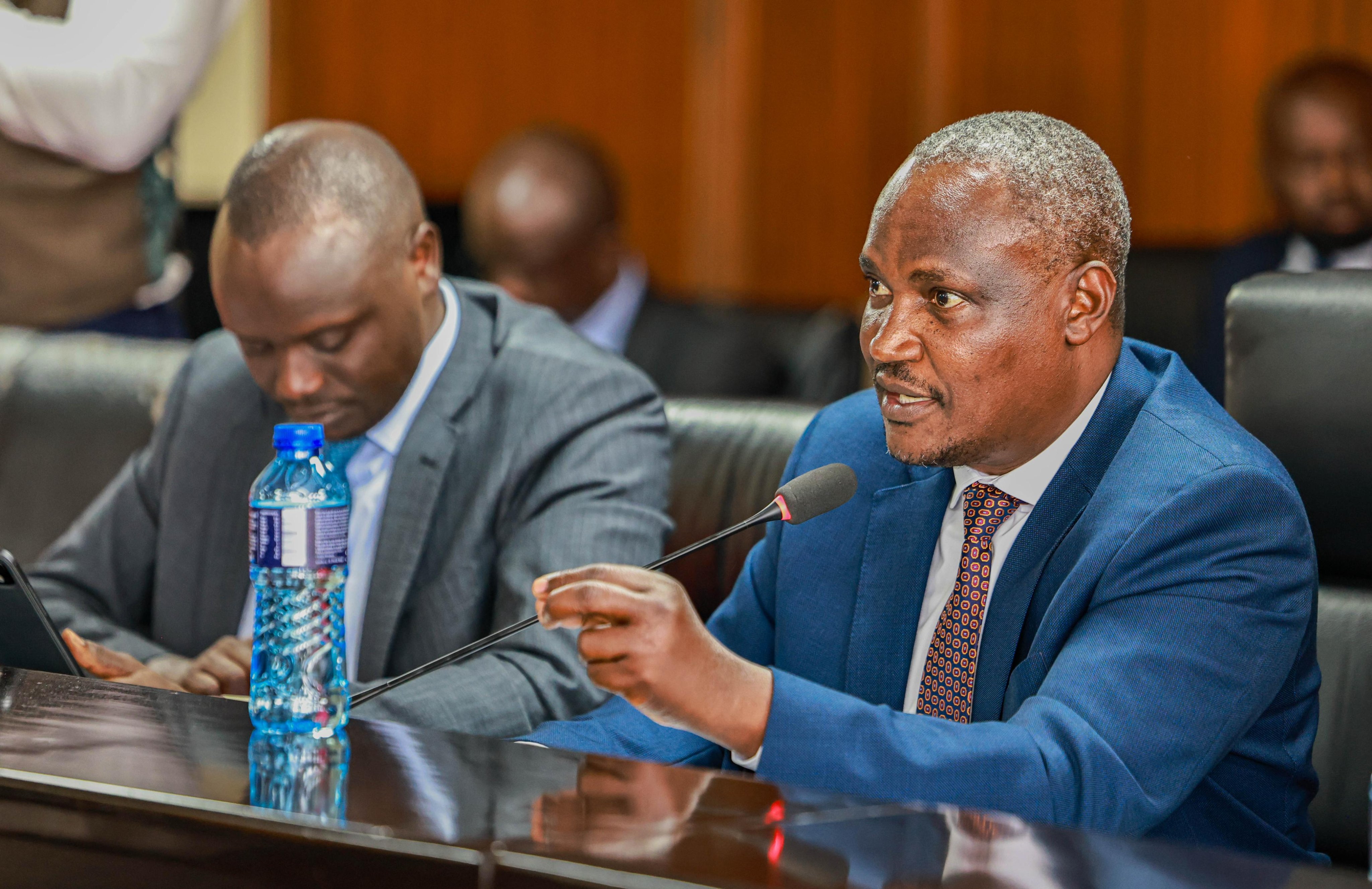 Treasury CS John Mbadi./FILE
Treasury CS John Mbadi./FILE
A delegation from the International Monetary Fund (IMF) is in the country to review Kenya’s management of its wage bill.
The team started its work on Monday and will be meeting various government ministries, agencies, independent offices and constitutional commissions.
National Treasury has written to civil servants through their trade unions that include Central Organization of Trade Unions (COTU), Universities Academic Staff Union (UASU), Kenya National Union of Teachers (KNUT), Kenya Medical Practitioners, Pharmacists and Dentists Union (KMPDU) among others informing them of the mission.
“The National Treasury wishes to inform you that the International Monetary Fund's (IMF) Fiscal Affairs Department will conduct a Wage Bill Mission in Kenya from 17th to 25th November 2025,” Treasury PS Chris Kiptoo letter dated 11th November 2025 reads.
According to Kiptoo, the primary objective of this mission is to review and evaluate the current management of the wage bill, analyse expenditure trends, and discuss ongoing reforms across various government Ministries, Departments, and Agencies (MDAs).
This mission will involve engagement with key stakeholders within the National Treasury, and other relevant MDAs.
“The goal is to foster a comprehensive understanding of wage bill dynamics and to support efforts aimed at enhancing fiscal sustainability and implementing public wage reforms,” the PS said.
He added; “The purpose of this communication is to inform you about the upcoming IMF Mission on Wage Bill Management. The mission will be coordinated by the Directorate of Budget, Fiscal, and Economic Affairs.
The PS has informed public employees that the IMF Mission may necessitate virtual meetings before the scheduled in-person sessions on the designated dates.
“Your valuable insights and contributions are crucial in developing effective wage bill management strategies and promoting fiscal discipline within the public sector. Your participation will play a vital role in shaping policies that ensure sustainable fiscal practices and efficient resource allocation across government entities.”
The IMF team will seek to analysis of wage bill trends and expenditure management strategies, evaluation of data collection systems, including the Government Human Resources Information System (GHRIS) and integrated payroll databases.
It will also review of public sector employment practices, including recruitment, retention, and workforce management strategies, sector-specific wage bill data analysis, covering sectors such as health, education, police, judiciary, and other vital sectors
They will also hold a discussion of reforms, policy measures, and future strategies to contain and optimize wage bill expenditures and enhancement of coordination among MDAs and with the IMF to improve data accuracy and policy implementation.
On Monday, the IMF team met officers from the State Department for Public Service and Human Capital Development in the morning and those from Public Service Commission (PSC) in the afternoon.
Yesterday the team had an introductory meeting with Treasury CS John Mbadi, PS Kiptoo and senior Treasury officials; Teachers Service Commission (TSC), Salaries and Remuneration Commission (SRC) and Kenya National Bureau of Statistics (KNBS).
Today the officers will meet senior staff from the ministries of Education, Health and those from State for Justice Human Rights and Constitutional Affairs while tomorrow Thursday those from Office of the Auditor-General (OAG), Council of Governors (COG) and Ministry of Internal Security and National Administration.
Speaking before a parliamentary committee on Monday, 4th November, 2025, CS Mbadi warned that while improving salaries is important, the government faces severe fiscal constraints that limit its ability to increase pay.
“Up to January 2025, we were paying Sh75 billion per month, translating to Sh900 billion per year. Today, it has gone up by Sh5 billion more per month. It is now S80 billion, Sh960 billion per year. This level is not sustainable. We will end up crowding out capital expenditure,” Mbadi told MPs.















